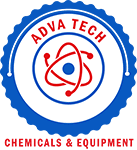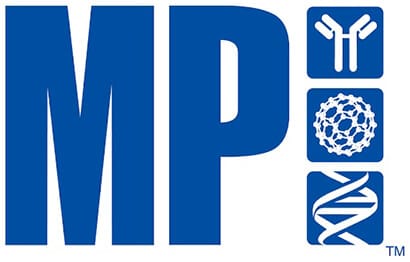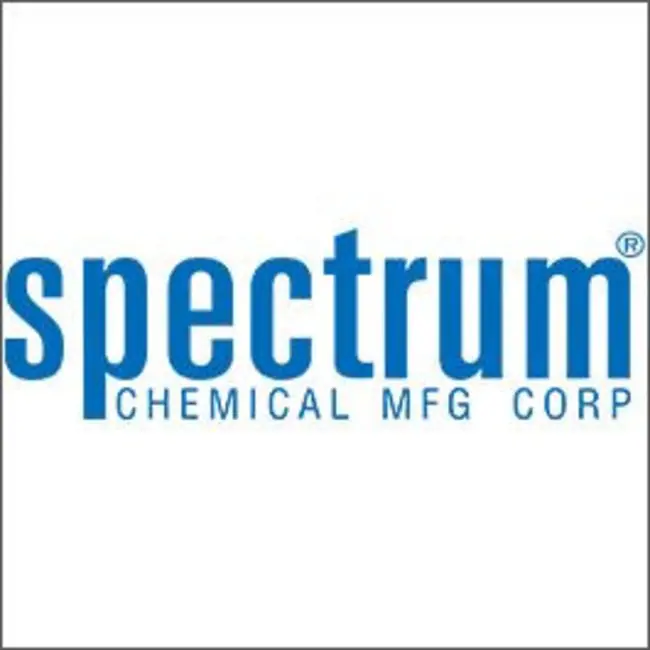Shop
Showing 155601–155650 of 219229 results
-
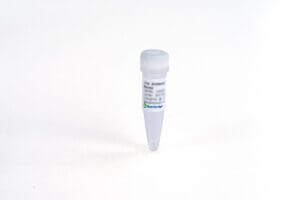
PD-1 (2E5), mAb, Mouse
$13,066.88 Add to cart View Product DetailsProgrammed Cell Death Protein 1 (PD-1), is cell surface receptor expressing on T cells and pro-B cells. The binding of PD-1 to its two ligands, PD-L1 and PD-L2, could result in down-regulation of the immune system by inhibiting the T-cell activation process. Thus, PD-1 is an important immune checkpoint and a popular target for therapeutic antibodies against many cancers.
-

PD-1 (2E5), mAb, Mouse
$111,090.00 Add to cart View Product DetailsProgrammed Cell Death Protein 1 (PD-1), is cell surface receptor expressing on T cells and pro-B cells. The binding of PD-1 to its two ligands, PD-L1 and PD-L2, could result in down-regulation of the immune system by inhibiting the T-cell activation process. Thus, PD-1 is an important immune checkpoint and a popular target for therapeutic antibodies against many cancers.
-

PD-1 Fc Chimera, Human
$1,035.00 Add to cart View Product DetailsProgrammed cell death protein 1, also known as PD-1 and CD279 (cluster of differentiation 279) or PDCD1, is a protein that in humans is encoded by the PDCD1 gene. PD-1 is a cell surface receptor that belongs to the immunoglobulin superfamily and is expressed on T cells and pro-B cells.PD-1 binds two ligands, PD-L1 and PD-L2. PD-1 and its ligands play an important role in down regulating the immune system by preventing the activation of T-cells, which in turn reduces autoimmunity and promotes self-tolerance. The inhibitory effect of PD-1 is accomplished through a dual mechanism of promoting apoptosis (programmed cell death) in antigen specific T-cells in lymph nodes while simultaneously reducing apoptosis in regulatory T cells (suppressor T cells)
-

PD-1 Fc Chimera, Human
$103.50 Add to cart View Product DetailsProgrammed cell death protein 1, also known as PD-1 and CD279 (cluster of differentiation 279) or PDCD1, is a protein that in humans is encoded by the PDCD1 gene. PD-1 is a cell surface receptor that belongs to the immunoglobulin superfamily and is expressed on T cells and pro-B cells.PD-1 binds two ligands, PD-L1 and PD-L2. PD-1 and its ligands play an important role in down regulating the immune system by preventing the activation of T-cells, which in turn reduces autoimmunity and promotes self-tolerance. The inhibitory effect of PD-1 is accomplished through a dual mechanism of promoting apoptosis (programmed cell death) in antigen specific T-cells in lymph nodes while simultaneously reducing apoptosis in regulatory T cells (suppressor T cells)
-

PD-1 Fc Chimera, Mouse
$1,035.00 Add to cart View Product DetailsProgrammed cell death protein 1, also known as PD-1 and CD279 (cluster of differentiation 279) or PDCD1, is a protein that in humans is encoded by the PDCD1 gene. PD-1 is a cell surface receptor that belongs to the immunoglobulin superfamily and is expressed on T cells and pro-B cells.PD-1 binds two ligands, PD-L1 and PD-L2. PD-1 and its ligands play an important role in down regulating the immune system by preventing the activation of T-cells, which in turn reduces autoimmunity and promotes self-tolerance. The inhibitory effect of PD-1 is accomplished through a dual mechanism of promoting apoptosis (programmed cell death) in antigen specific T-cells in lymph nodes while simultaneously reducing apoptosis in regulatory T cells (suppressor T cells).
-

PD-1 Fc Chimera, Mouse
$172.50 Add to cart View Product DetailsProgrammed cell death protein 1, also known as PD-1 and CD279 (cluster of differentiation 279) or PDCD1, is a protein that in humans is encoded by the PDCD1 gene. PD-1 is a cell surface receptor that belongs to the immunoglobulin superfamily and is expressed on T cells and pro-B cells.PD-1 binds two ligands, PD-L1 and PD-L2. PD-1 and its ligands play an important role in down regulating the immune system by preventing the activation of T-cells, which in turn reduces autoimmunity and promotes self-tolerance. The inhibitory effect of PD-1 is accomplished through a dual mechanism of promoting apoptosis (programmed cell death) in antigen specific T-cells in lymph nodes while simultaneously reducing apoptosis in regulatory T cells (suppressor T cells).
-

PD-1 Fc Chimera, Mouse
$103.50 Add to cart View Product DetailsProgrammed cell death protein 1, also known as PD-1 and CD279 (cluster of differentiation 279) or PDCD1, is a protein that in humans is encoded by the PDCD1 gene. PD-1 is a cell surface receptor that belongs to the immunoglobulin superfamily and is expressed on T cells and pro-B cells.PD-1 binds two ligands, PD-L1 and PD-L2. PD-1 and its ligands play an important role in down regulating the immune system by preventing the activation of T-cells, which in turn reduces autoimmunity and promotes self-tolerance. The inhibitory effect of PD-1 is accomplished through a dual mechanism of promoting apoptosis (programmed cell death) in antigen specific T-cells in lymph nodes while simultaneously reducing apoptosis in regulatory T cells (suppressor T cells).
-
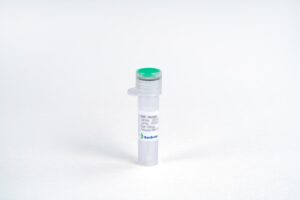
PD-1, His, Human
$1,293.75 Add to cart View Product DetailsProgrammed death (PD-1) is an immunoinhibitory receptor that belongs to the CD28 family and is expressed on T cells, B cells, monocytes, natural killer cells, and many tumor-infiltrating lymphocytes (TILs); PD-1 is a type I membrane protein of 268 amino acids and which structure includes an extracellular IgV domain followed by a transmembrane region and an intracellular tail. The intracellular tail contains two phosphorylation sites located in an immunoreceptor tyrosine-based inhibitory motif and an immunoreceptor tyrosine-based switch motif, which suggests that PD-1 negatively regulates TCR signals. This is consistent with binding of SHP-1 and SHP-2 phosphatases to the cytoplasmic tail of PD-1 upon ligand binding. It has 2 ligands that have been described PD-L1(B7H1) and PD-L2(B7-DC); PD-1 induction on activated T cells occurs in response to PD-L1 or L2 engagement and limits effector T-cell activity in peripheral organs and tissues during inflammation, thus preventing autoimmunity.Recombinant Human PD-1 produced in HEK293 cells is a polypeptide chain containing 149 amino acids with C-terminal 6×His. A fully biologically active molecule, rhPD-1 has a molecular mass of 30-40 kDa analyzed by reducing SDS-PAGE and is obtained by chromatographic techniques at GenScript.
-

PD-1, His, Human
$172.50 Add to cart View Product DetailsProgrammed death (PD-1) is an immunoinhibitory receptor that belongs to the CD28 family and is expressed on T cells, B cells, monocytes, natural killer cells, and many tumor-infiltrating lymphocytes (TILs); PD-1 is a type I membrane protein of 268 amino acids and which structure includes an extracellular IgV domain followed by a transmembrane region and an intracellular tail. The intracellular tail contains two phosphorylation sites located in an immunoreceptor tyrosine-based inhibitory motif and an immunoreceptor tyrosine-based switch motif, which suggests that PD-1 negatively regulates TCR signals. This is consistent with binding of SHP-1 and SHP-2 phosphatases to the cytoplasmic tail of PD-1 upon ligand binding. It has 2 ligands that have been described PD-L1(B7H1) and PD-L2(B7-DC); PD-1 induction on activated T cells occurs in response to PD-L1 or L2 engagement and limits effector T-cell activity in peripheral organs and tissues during inflammation, thus preventing autoimmunity.Recombinant Human PD-1 produced in HEK293 cells is a polypeptide chain containing 149 amino acids with C-terminal 6×His. A fully biologically active molecule, rhPD-1 has a molecular mass of 30-40 kDa analyzed by reducing SDS-PAGE and is obtained by chromatographic techniques at GenScript.
-

PD-1/CD279 Rabbit pAb
$239.89 Add to cart View Product DetailsPolyclonal Antibodies
-

PD-1/CD279 Rabbit pAb
$86.94 Add to cart View Product DetailsPolyclonal Antibodies
-

PD-1/CD279 Rabbit pAb
$86.94 Add to cart View Product DetailsPolyclonal Antibodies
-

PD-1/CD279 Rabbit pAb
$239.89 Add to cart View Product DetailsPolyclonal Antibodies
-
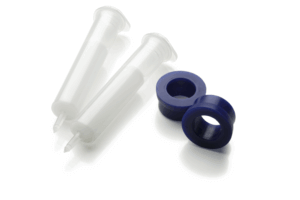
PD-10 Spin Adapter
$29.10 Add to cart View Product DetailsPD-10 Spin Adapter
-
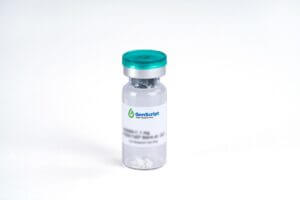
PD-L1 Fc Chimera, Human
$1,035.00 Add to cart View Product DetailsProgrammed death-ligand 1 (PD-L1) also known as cluster of differentiation 274 (CD274) or B7 homolog 1 (B7-H1), is a protein that in humans is encoded by the CD274 gene. PD-L1 is a 40 kDa type 1 transmembrane protein that has been speculated to play a major role in suppressing the immune system during particular events such as pregnancy, tissue allografts, autoimmune disease and other disease states such as hepatitis. Normally the immune system reacts to foreign antigens where there is some accumulation in the lymph nodes or spleen which triggers a proliferation of antigen-specific CD8+ T cell. The formation of PD-1 receptor / PD-L1 or B7.1 receptor /PD-L1 ligand complex transmits an inhibitory signal which reduces the proliferation of these CD8+ T cells at the lymph nodes and supplementary to that PD-1 is also able to control the accumulation of foreign antigen specific T cells in the lymph nodes through apoptosis which is further mediated by a lower regulation of the gene Bcl-2. PD-L1 binds to its receptor, PD-1, found on activated T cells, B cells, and myeloid cells, to modulate activation or inhibition. Recombinant Human PD-L1(B7-H1) Fc Chimera produced in CHO cells is a polypeptide chain containing 457 amino acids. A fully biologically active molecule, rh PD‑L1(B7-H1) has a molecular mass of 70-72 kDa analyzed by reducing SDS-PAGE and is obtained by chromatographic techniques at GenScript.
-
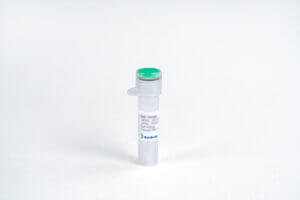
PD-L1 Fc Chimera, Human
$103.50 Add to cart View Product DetailsProgrammed death-ligand 1 (PD-L1) also known as cluster of differentiation 274 (CD274) or B7 homolog 1 (B7-H1), is a protein that in humans is encoded by the CD274 gene. PD-L1 is a 40 kDa type 1 transmembrane protein that has been speculated to play a major role in suppressing the immune system during particular events such as pregnancy, tissue allografts, autoimmune disease and other disease states such as hepatitis. Normally the immune system reacts to foreign antigens where there is some accumulation in the lymph nodes or spleen which triggers a proliferation of antigen-specific CD8+ T cell. The formation of PD-1 receptor / PD-L1 or B7.1 receptor /PD-L1 ligand complex transmits an inhibitory signal which reduces the proliferation of these CD8+ T cells at the lymph nodes and supplementary to that PD-1 is also able to control the accumulation of foreign antigen specific T cells in the lymph nodes through apoptosis which is further mediated by a lower regulation of the gene Bcl-2. PD-L1 binds to its receptor, PD-1, found on activated T cells, B cells, and myeloid cells, to modulate activation or inhibition. Recombinant Human PD-L1(B7-H1) Fc Chimera produced in CHO cells is a polypeptide chain containing 457 amino acids. A fully biologically active molecule, rh PD‑L1(B7-H1) has a molecular mass of 70-72 kDa analyzed by reducing SDS-PAGE and is obtained by chromatographic techniques at GenScript.
-

PD-L1 Fc Chimera, Mouse
$1,035.00 Add to cart View Product DetailsProgrammed death-ligand 1 (PD-L1) also known as cluster of differentiation 274 (CD274) or B7 homolog 1 (B7-H1), is a protein that in humans is encoded by the CD274 gene. PD-L1 is a 40 kDa type 1 transmembrane protein that has been speculated to play a major role in suppressing the immune system during particular events such as pregnancy, tissue allografts, autoimmune disease and other disease states such as hepatitis. Normally the immune system reacts to foreign antigens where there is some accumulation in the lymph nodes or spleen which triggers a proliferation of antigen-specific CD8+ T cell. The formation of PD-1 receptor / PD-L1 or B7.1 receptor /PD-L1 ligand complex transmits an inhibitory signal which reduces the proliferation of these CD8+ T cells at the lymph nodes and supplementary to that PD-1 is also able to control the accumulation of foreign antigen specific T cells in the lymph nodes through apoptosis which is further mediated by a lower regulation of the gene Bcl-2. PD-L1 binds to its receptor, PD-1, found on activated T cells, B cells, and myeloid cells, to modulate activation or inhibition.
-

PD-L1 Fc Chimera, Mouse
$34.50 Add to cart View Product DetailsProgrammed death-ligand 1 (PD-L1) also known as cluster of differentiation 274 (CD274) or B7 homolog 1 (B7-H1), is a protein that in humans is encoded by the CD274 gene. PD-L1 is a 40 kDa type 1 transmembrane protein that has been speculated to play a major role in suppressing the immune system during particular events such as pregnancy, tissue allografts, autoimmune disease and other disease states such as hepatitis. Normally the immune system reacts to foreign antigens where there is some accumulation in the lymph nodes or spleen which triggers a proliferation of antigen-specific CD8+ T cell. The formation of PD-1 receptor / PD-L1 or B7.1 receptor /PD-L1 ligand complex transmits an inhibitory signal which reduces the proliferation of these CD8+ T cells at the lymph nodes and supplementary to that PD-1 is also able to control the accumulation of foreign antigen specific T cells in the lymph nodes through apoptosis which is further mediated by a lower regulation of the gene Bcl-2. PD-L1 binds to its receptor, PD-1, found on activated T cells, B cells, and myeloid cells, to modulate activation or inhibition.
-

PD-L1 Fc Chimera, Mouse
$103.50 Add to cart View Product DetailsProgrammed death-ligand 1 (PD-L1) also known as cluster of differentiation 274 (CD274) or B7 homolog 1 (B7-H1), is a protein that in humans is encoded by the CD274 gene. PD-L1 is a 40 kDa type 1 transmembrane protein that has been speculated to play a major role in suppressing the immune system during particular events such as pregnancy, tissue allografts, autoimmune disease and other disease states such as hepatitis. Normally the immune system reacts to foreign antigens where there is some accumulation in the lymph nodes or spleen which triggers a proliferation of antigen-specific CD8+ T cell. The formation of PD-1 receptor / PD-L1 or B7.1 receptor /PD-L1 ligand complex transmits an inhibitory signal which reduces the proliferation of these CD8+ T cells at the lymph nodes and supplementary to that PD-1 is also able to control the accumulation of foreign antigen specific T cells in the lymph nodes through apoptosis which is further mediated by a lower regulation of the gene Bcl-2. PD-L1 binds to its receptor, PD-1, found on activated T cells, B cells, and myeloid cells, to modulate activation or inhibition.
-
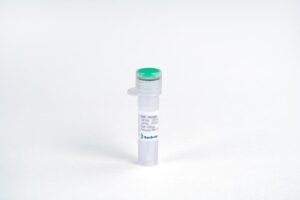
PD-L1, His, Human
$1,035.00 Add to cart View Product DetailsProgrammed death-ligand 1 (PD-L1) also known as cluster of differentiation 274 (CD274) or B7 homolog 1 (B7-H1), is a protein that in humans is encoded by the CD274 gene. PD-L1 is a 40 kDa type 1 transmembrane protein that has been speculated to play a major role in suppressing the immune system during particular events such as pregnancy, tissue allografts, autoimmune disease and other disease states such as hepatitis. Normally the immune system reacts to foreign antigens where there is some accumulation in the lymph nodes or spleen which triggers a proliferation of antigen-specific CD8+ T cell. The formation of PD-1 receptor / PD-L1 or B7.1 receptor /PD-L1 ligand complex transmits an inhibitory signal which reduces the proliferation of these CD8+ T cells at the lymph nodes and supplementary to that PD-1 is also able to control the accumulation of foreign antigen specific T cells in the lymph nodes through apoptosis which is further mediated by a lower regulation of the gene Bcl-2. PD-L1 binds to its receptor, PD-1, found on activated T cells, B cells, and myeloid cells, to modulate activation or inhibition. Recombinant Human PD-L1(B7-H1) Fc Chimera produced in CHO cells is a polypeptide chain containing 457 amino acids. A fully biologically active molecule, rh PD‑L1(B7-H1) has a molecular mass of 70-72 kDa analyzed by reducing SDS-PAGE and is obtained by chromatographic techniques at GenScript.
-

PD-L1, His, Human
$129.38 Add to cart View Product DetailsProgrammed death-ligand 1 (PD-L1) also known as cluster of differentiation 274 (CD274) or B7 homolog 1 (B7-H1), is a protein that in humans is encoded by the CD274 gene. PD-L1 is a 40 kDa type 1 transmembrane protein that has been speculated to play a major role in suppressing the immune system during particular events such as pregnancy, tissue allografts, autoimmune disease and other disease states such as hepatitis. Normally the immune system reacts to foreign antigens where there is some accumulation in the lymph nodes or spleen which triggers a proliferation of antigen-specific CD8+ T cell. The formation of PD-1 receptor / PD-L1 or B7.1 receptor /PD-L1 ligand complex transmits an inhibitory signal which reduces the proliferation of these CD8+ T cells at the lymph nodes and supplementary to that PD-1 is also able to control the accumulation of foreign antigen specific T cells in the lymph nodes through apoptosis which is further mediated by a lower regulation of the gene Bcl-2. PD-L1 binds to its receptor, PD-1, found on activated T cells, B cells, and myeloid cells, to modulate activation or inhibition. Recombinant Human PD-L1(B7-H1) Fc Chimera produced in CHO cells is a polypeptide chain containing 457 amino acids. A fully biologically active molecule, rh PD‑L1(B7-H1) has a molecular mass of 70-72 kDa analyzed by reducing SDS-PAGE and is obtained by chromatographic techniques at GenScript.
-

PD-L1/CD274 Rabbit mAb
$296.24 Add to cart View Product DetailsMonoclonal Antibodies
-

PD-L1/CD274 Rabbit mAb
$264.04 Add to cart View Product DetailsMonoclonal Antibodies
-

PD-L1/CD274 Rabbit mAb
$119.14 Add to cart View Product DetailsMonoclonal Antibodies
-

PD-L1/CD274 Rabbit mAb
$103.04 Add to cart View Product DetailsMonoclonal Antibodies
-

PD-L1/CD274 Rabbit pAb
$239.89 Add to cart View Product DetailsPolyclonal Antibodies
-

PD-L1/CD274 Rabbit pAb
$86.94 Add to cart View Product DetailsPolyclonal Antibodies
-

PD-L1/CD274 Rabbit pAb
$239.89 Add to cart View Product DetailsPolyclonal Antibodies
-

PD-L1/CD274 Rabbit pAb
$86.94 Add to cart View Product DetailsPolyclonal Antibodies
-

PD-L2 Fc Chimera, Human
$1,035.00 Add to cart View Product DetailsPD-L1 and PD-L2 are ligands for PD-1, a costimulatory molecule that plays an inhibitory role in regulating T cell activation in the periphery. PD-L2 also known as PD-L2, B7-DC serves as a negative and a positive regulator of T cell function. The expression and function of PD-L2 are similar to PD-L1. Both PD-L2−PD-1 and PD-L1−PD-1 signals inhibit T cell proliferation by blocking cell cycle progression but not by increasing cell death. PD-L2−PD-1 interactions are able to inhibit TCR-mediated proliferation and cytokine production in the absence of CD28 costimulation. Threshold for T cell activation may be a balance between activating signals, such as those delivered by the engagement of CD28 by B7-1 and B7-2, and inhibitory signals, mediated by engagement of PD-1 by PD-L1 and PD-L2. The structural conservation of B7-like and CD28-like receptors may reflect the distance between T cells and APCs in the immunological synapse. The PD-L−PD-1 pathway may play a key role in the induction and/or maintenance of peripheral tolerance and autoimmune disease. Because PD-L1 and PD-L2 can inhibit effector T cell proliferation and cytokine production, the PD-L−PD-1 pathway may be an attractive therapeutic target. Blocking the PD-1 pathway may enhance anti-tumor immunity, whereas stimulating this pathway may be useful for down-regulating ongoing immune responses in transplant rejection and autoimmune and allergic diseases.
-

PD-L2 Fc Chimera, Human
$215.63 Add to cart View Product DetailsPD-L1 and PD-L2 are ligands for PD-1, a costimulatory molecule that plays an inhibitory role in regulating T cell activation in the periphery. PD-L2 also known as PD-L2, B7-DC serves as a negative and a positive regulator of T cell function. The expression and function of PD-L2 are similar to PD-L1. Both PD-L2−PD-1 and PD-L1−PD-1 signals inhibit T cell proliferation by blocking cell cycle progression but not by increasing cell death. PD-L2−PD-1 interactions are able to inhibit TCR-mediated proliferation and cytokine production in the absence of CD28 costimulation. Threshold for T cell activation may be a balance between activating signals, such as those delivered by the engagement of CD28 by B7-1 and B7-2, and inhibitory signals, mediated by engagement of PD-1 by PD-L1 and PD-L2. The structural conservation of B7-like and CD28-like receptors may reflect the distance between T cells and APCs in the immunological synapse. The PD-L−PD-1 pathway may play a key role in the induction and/or maintenance of peripheral tolerance and autoimmune disease. Because PD-L1 and PD-L2 can inhibit effector T cell proliferation and cytokine production, the PD-L−PD-1 pathway may be an attractive therapeutic target. Blocking the PD-1 pathway may enhance anti-tumor immunity, whereas stimulating this pathway may be useful for down-regulating ongoing immune responses in transplant rejection and autoimmune and allergic diseases.
-

PD-L2/CD273 Rabbit mAb
$103.04 Add to cart View Product DetailsMonoclonal Antibodies
-

PD-L2/CD273 Rabbit mAb
$264.04 Add to cart View Product DetailsMonoclonal Antibodies
-
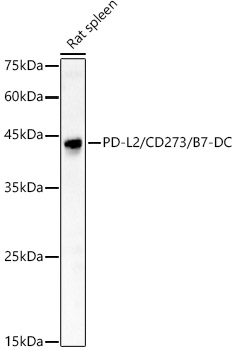
PD-L2/CD273/B7-DC Rabbit pAb
$86.94 Add to cart View Product DetailsPolyclonal Antibodies
-

PD-L2/CD273/B7-DC Rabbit pAb
$239.89 Add to cart View Product DetailsPolyclonal Antibodies
-
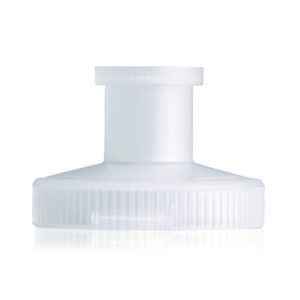
PD-Tip Adapter for 25 & 50mL, N/S, 10/PK
$98.67 Add to cart View Product DetailsPD-Tip Adapter for 25 & 50mL, N/S, 10/PK
-
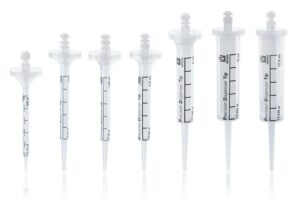
PD-Tip II, multi-pack, N/S, 20 each of 0.5mL, 1mL, 1.25mL, 2.5mL, 5mL, 10mL, 12.5mL (140 tips total)
$164.45 Add to cart View Product DetailsPD-Tip II, multi-pack, N/S, 20 each of 0.5mL, 1mL, 1.25mL, 2.5mL, 5mL, 10mL, 12.5mL (140 tips total)
-
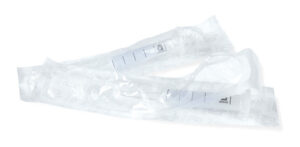
PD-Tips II, 1 ml, BIO-CERT, indiv. wrapped, PP/PE-HD, type encoded, 100/PK
$168.64 Add to cart View Product DetailsPD-Tips II, 1 ml, BIO-CERT, indiv. wrapped, PP/PE-HD, type encoded, 100/PK
-

PD-Tips II, 0.1 ml, BIO-CERT, indiv. wrapped, PP/LCP, type encoded, 100/PK
$168.64 Add to cart View Product DetailsPD-Tips II, 0.1 ml, BIO-CERT, indiv. wrapped, PP/LCP, type encoded, 100/PK
-
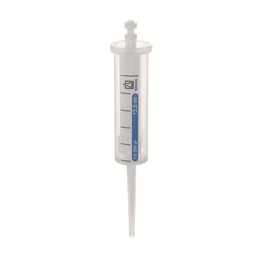
PD-Tips II, 0.1 ml, BIO-CERT, individually wrapped, PP/LCP, type encoded
$198.03 Add to cart View Product DetailsPD-Tips II, 0.1 ml, BIO-CERT, individually wrapped, PP/LCP, type encoded
-

PD-Tips II, 0.1 ml, non-sterile, bulk, cylinder PP / piston LCP, type encoded
$144.90 Add to cart View Product DetailsPD-Tips II, 0.1 ml, non-sterile, bulk, cylinder PP / piston LCP, type encoded
-
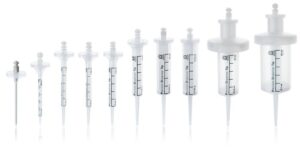
PD-Tips II, 0.1 ml, non-sterile, cylinder PP, piston LCP, type encoded, 100/PK
$123.34 Add to cart View Product DetailsPD-Tips II, 0.1 ml, non-sterile, cylinder PP, piston LCP, type encoded, 100/PK
-

PD-Tips II, 0.5 ml, BIO-CERT, indiv. wrapped, PP/PE-HD, type encoded, 100/PK
$168.64 Add to cart View Product DetailsPD-Tips II, 0.5 ml, BIO-CERT, indiv. wrapped, PP/PE-HD, type encoded, 100/PK
-

PD-Tips II, 0.5 ml, BIO-CERT, individually wrapped, PP/PE-HD, type encoded
$198.03 Add to cart View Product DetailsPD-Tips II, 0.5 ml, BIO-CERT, individually wrapped, PP/PE-HD, type encoded
-

PD-Tips II, 0.5 ml, non-sterile, bulk, cylinder PP / piston PE-HD, type encoded
$144.90 Add to cart View Product DetailsPD-Tips II, 0.5 ml, non-sterile, bulk, cylinder PP / piston PE-HD, type encoded
-

PD-Tips II, 0.5 ml, non-sterile, cylinder PP/piston PE-HD, type encoded, 100/PK
$123.34 Add to cart View Product DetailsPD-Tips II, 0.5 ml, non-sterile, cylinder PP/piston PE-HD, type encoded, 100/PK
-

PD-Tips II, 1 ml, BIO-CERT, individually wrapped, PP/PE-HD, type encoded
$198.03 Add to cart View Product DetailsPD-Tips II, 1 ml, BIO-CERT, individually wrapped, PP/PE-HD, type encoded
-

PD-Tips II, 1 ml, non-sterile, bulk, cylinder PP / piston PE-HD, type encoded
$144.90 Add to cart View Product DetailsPD-Tips II, 1 ml, non-sterile, bulk, cylinder PP / piston PE-HD, type encoded
-

PD-Tips II, 1 ml, non-sterile, cylinder PP/piston PE-HD, type encoded, 100/PK
$123.34 Add to cart View Product DetailsPD-Tips II, 1 ml, non-sterile, cylinder PP/piston PE-HD, type encoded, 100/PK
-

PD-Tips II, 1.25 ml, BIO-CERT, indiv. wrapped, PP/PE-HD, type encoded, 100/PK
$168.64 Add to cart View Product DetailsPD-Tips II, 1.25 ml, BIO-CERT, indiv. wrapped, PP/PE-HD, type encoded, 100/PK
